Afuri Ramen & Dumplings Opens Its First California Outpost
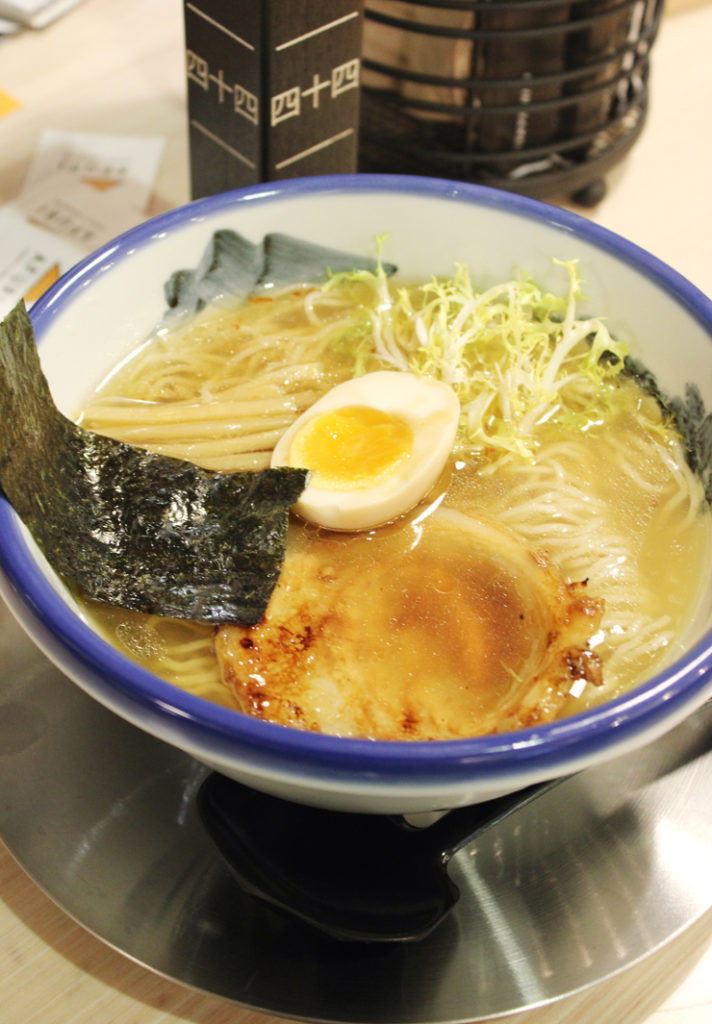
Can you stand yet another ramen joint opening in the Bay Area?
You surely can when it’s one that not only specializes in a chicken-based broth rather than pork, but also offers a unique hazelnut vegan broth.
Tokyo-based Afuri opened its first California outpost on Tuesday. The 54-seat fast-casual restaurant in Cupertino, a stone’s throw from Whole Foods, is its second U.S. locale, following the 70-seat one that opened in Portland last year, which now serves upwards of 500 bowls of ramen daily. Named for a mountain in Japan, Afuri also has a franchise location in Lisbon, with Richmond, B.C. also in the works. It expects to open another South Bay location next year, possibly in Mountain View.
I had a chance to preview some of the menu items the day before the Cupertino one opened to the public.

Step up to the electronic touch-screen kiosk to place your order for ramen, gyoza, rice bowls, beverages, and more. You can add extra toppings easily with the touch of a finger — or even eliminate any that you don’t want. Slide your credit card to pay; or hit a button to notify a server that you want to pay by cash instead. Then, grab a carved wooden number holder nearby and place it at your table for your server to find you to deliver the food.
The yuzu shio ($13) is what Afuri is best known for. Chicken and vegetables are gently simmered, rather than boiled, to create a more delicate and less fatty broth than your standard pork-based tonkotsu. Seasoned with salt and soy sauce, it’s plenty flavorful with a pronounced depth. The yuzu is what really makes it, though, giving it a floral, citrusy perkiness.

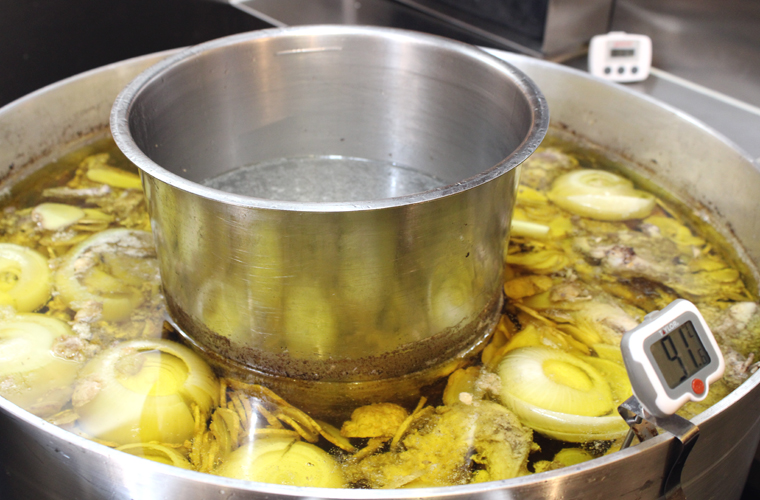
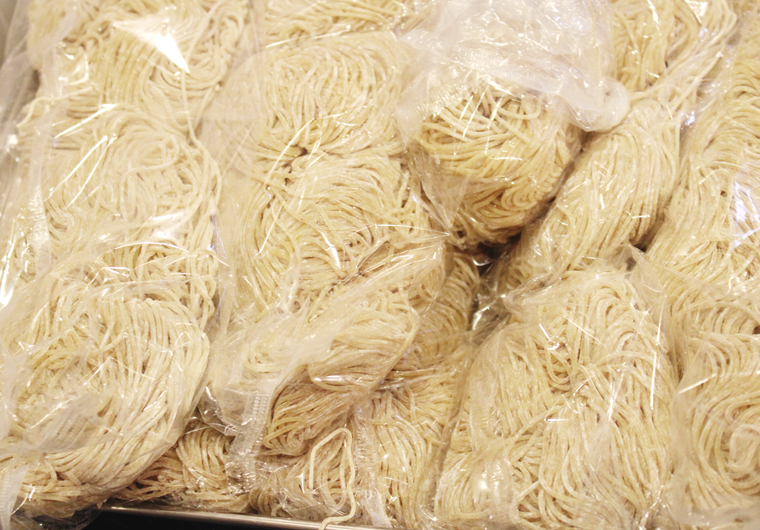
The tender, slightly snappy, noodles are now made by a local producer, using Afuri’s own recipe and blend of flours. When a second, larger Afuri opens next year, it will be designed to have its own temperature-controlled noodle-making room to supply both that location and Cupertino.
The standard bowl comes with preserved bamboo shoots, a half seasoned, slow-cooked egg, a round of chasu pork with a good amount of fat, endive, fried garlic chips and a piece of toasted nori.
Even if you are not vegetarian or vegan, though, you must try the hazelnut tantanmen ($15), which is only available here and at the Portland location. It is indeed made with a hazelnut broth, and finished with crunchy, umami-filled miso-flavored cashew crumbles. It’s a very rich, creamy bowl, with the flavors akin to Chinese peanut noodles — but more brothy, of course. The noodles used in this ramen are slightly thicker, so they can stand up to the heavier broth.
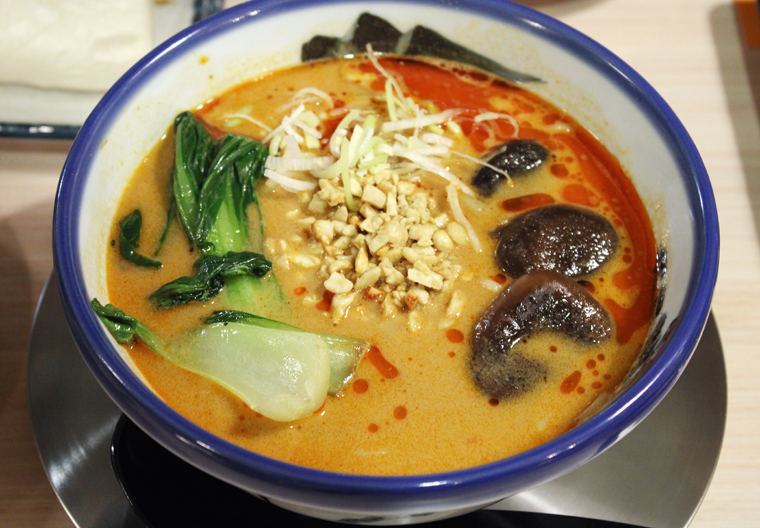
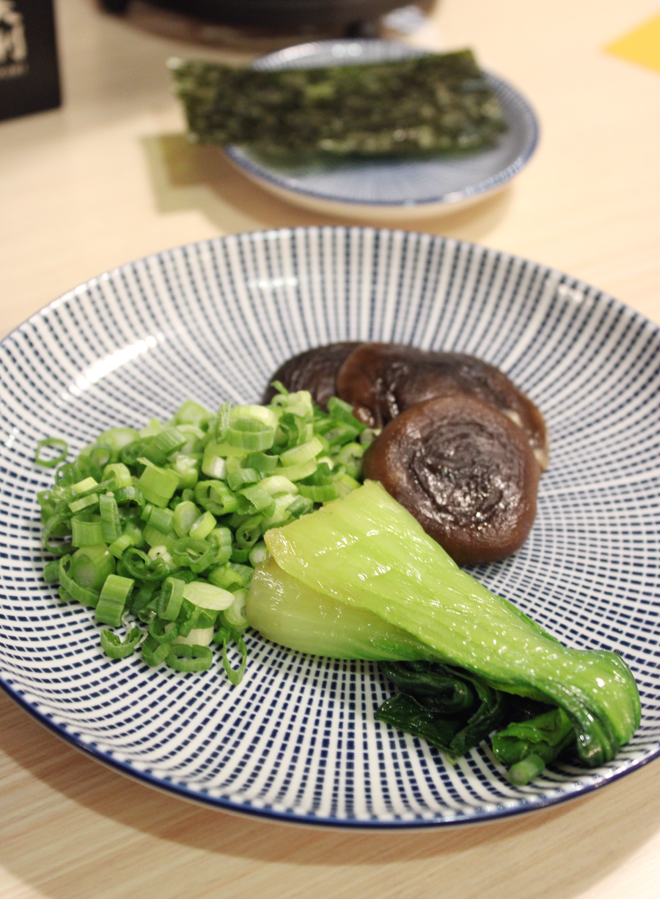
This vegan ramen, created for U.S. appetites, is not offered at the Afuri in Japan. Neither are the two tonkotsu ramen options, which are only offered at the Portland and Cupertino locations to satisfy U.S. diners who need their pork-broth fix.
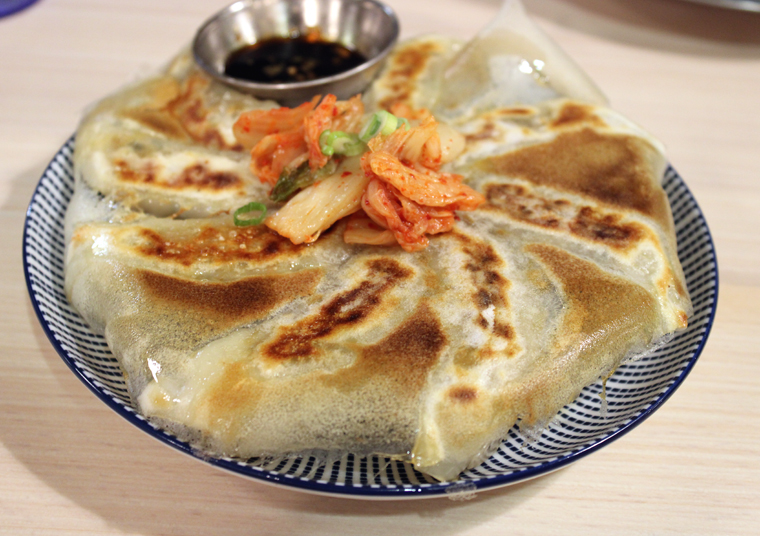
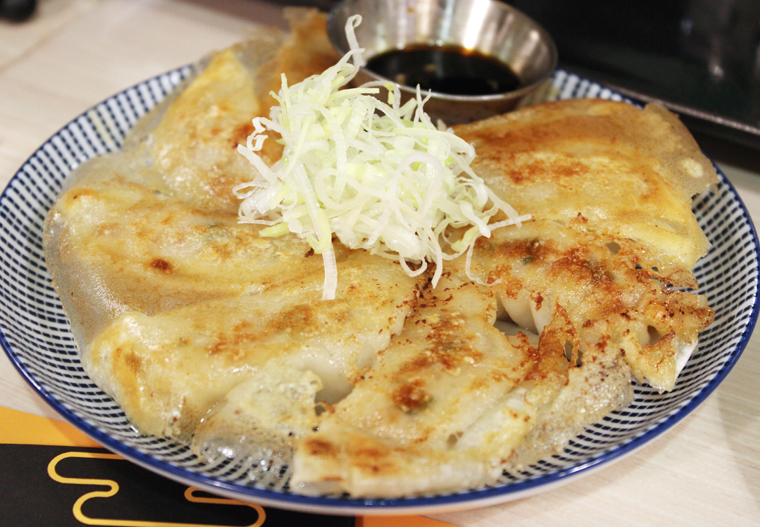
There is also a vegan version of gyoza (8 pieces for $10), in which cashews, cabbage and carrot are blended to form a pasty filling that is quite meat-like in texture. Kimchi in the mix and as a garnish adds a nice hit of fermented heat.
There’s also the classic pork gyoza (4 pieces for $8) that comes interconnected with a lacy web. They’re nicely seasoned with garlic and green onions.
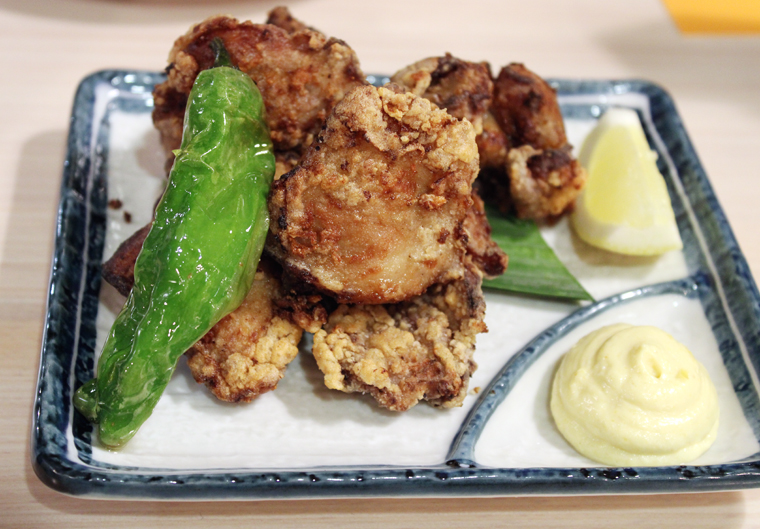
Chicken karaage ($7) is fried until golden, leaving it tender and juicy, owing to the fact that it’s made with thigh meat. A squirt of yuzu kosho egg salad is arranged off to the side as a sort of dipping sauce. It’s thick and blended until thoroughly creamy — tantalizing enough to smear on a slice of bread if there was one.
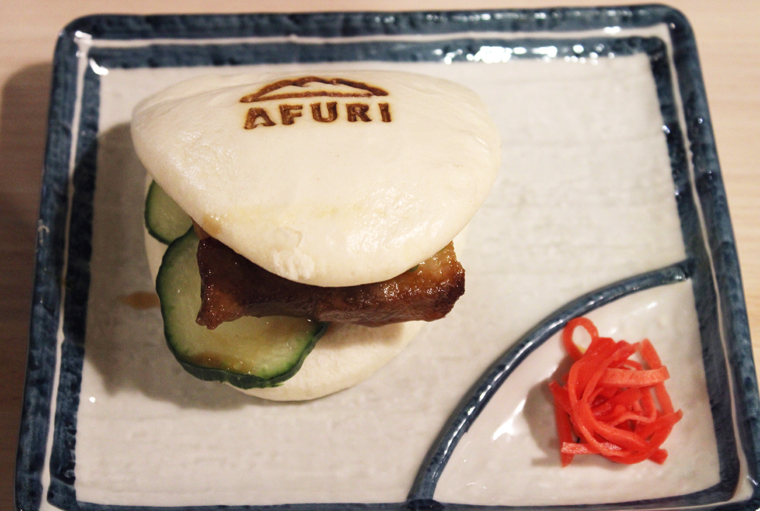
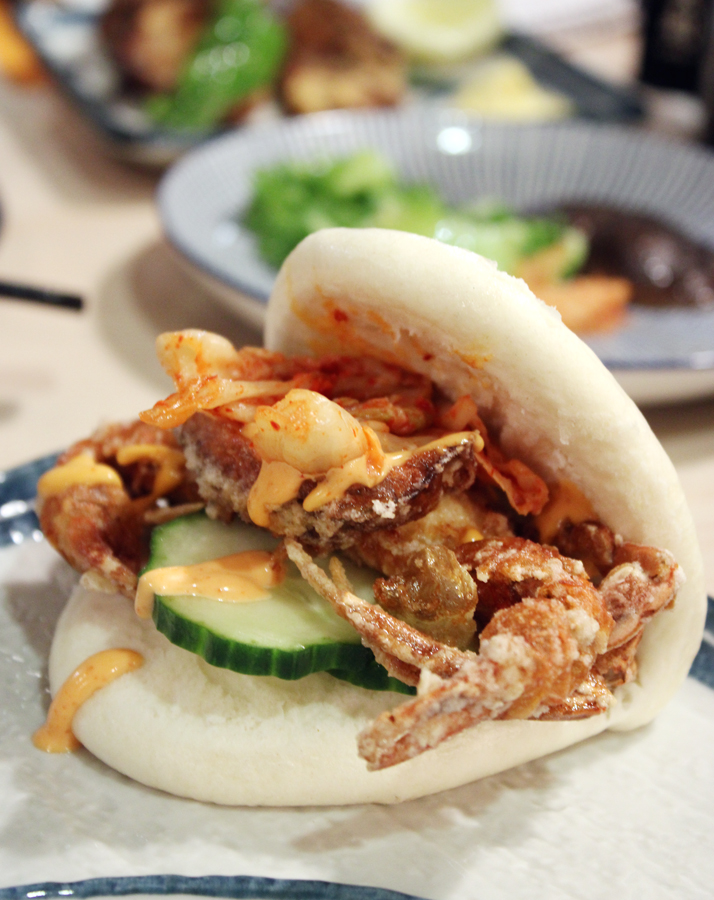
There’s also steamed buns to enjoy that come to the table branded with the restaurant’s logo. The kakuni pork one ($5) enfolds a slab of sweet, tender pork belly garnished with green onion, cucumber and pickled ginger. The fried soft shell crab one ($7) is all crunch from the crispy legs that get slathered with spicy mayo.
If rice rather than noodles is more your speed, there are also rice bowls to choose from including the kakuni chashu gohan ($10). Slices of sweet barbecued pork are arranged over sticky short-grain rice with green onions, frilly frisee, bamboo shoots, a slow-cooked egg, and a sprinkle of spicy togarashi.
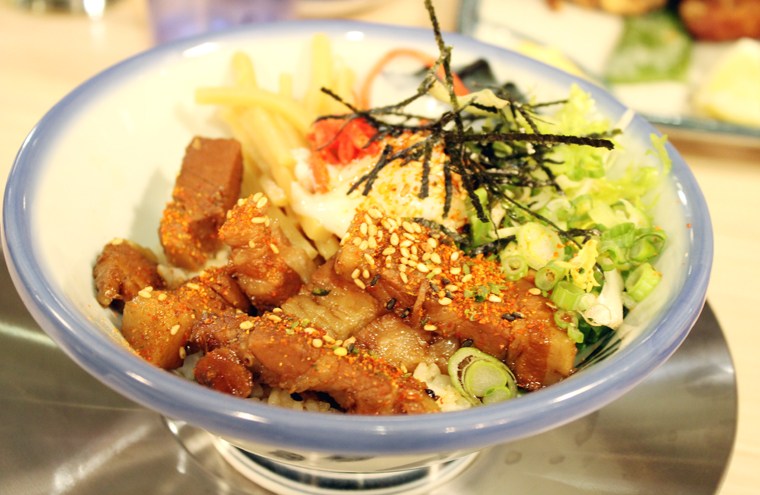
Afuri is awaiting approval of its liquor license. For now, do enjoy the non-alcoholic beverages, which feature juices pressed fresh daily on site. The yuzu limeade ($5) is just what you want on a sultry summer day. It’s refreshing as it gets with plenty of lime flavor and the lilt of yuzu without being too sweet.
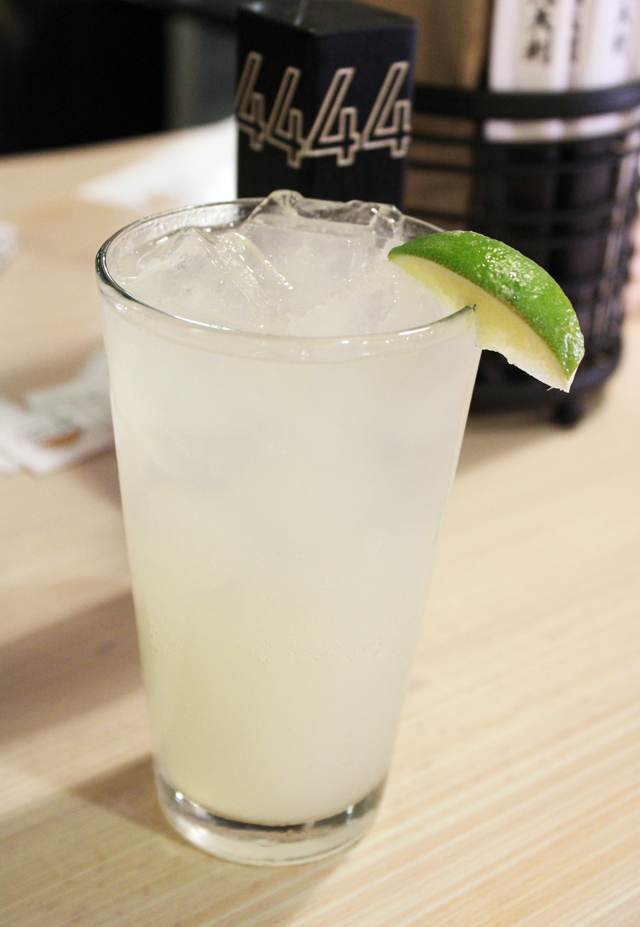

The Nikko ($5) is a creamy blend of orange juice, macadamia milk, lime and a touch of sugar. If you’re old enough to remember Orange Julius, this is very much a cousin to that iconic drink.
Afuri is now open for dinner nightly. Lunch service will start in the weeks to come. If you appreciate an alternative to the usual gut-busting tonkotsu ramen-style, it’s definitely worth checking out.

I’ll never turn down a dumpling. Or ramen. This looks like a place I’d be hanging out at all the time. Thanks!
OMG. I can’t recall the Portland location offering steamed buns, at least not 2-3 years ago. And I love their tsukemen style too. Very refreshing on a hot day.